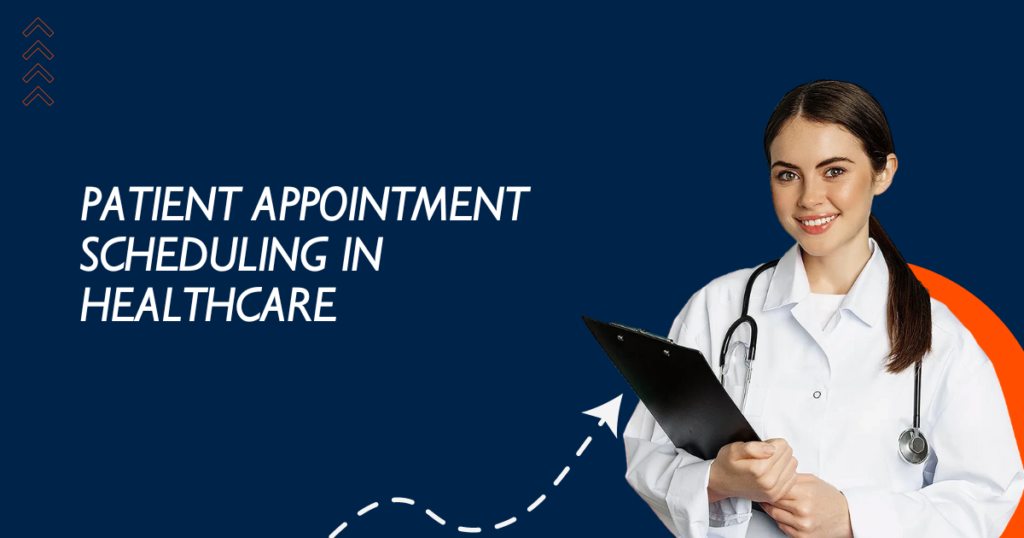One of the most common questions patients ask is, “How long will I have to wait for an appointment?” Whether it’s a routine check-up or a specialist consultation, the anxiety of not knowing when you’ll be seen can be overwhelming. Unfortunately, many healthcare facilities still struggle with patient appointment scheduling, leading to long wait times and frustrated patients.
Understanding Patient Appointment Scheduling
Patient Appointment Scheduling is the process of organizing and managing appointments between patients and healthcare providers. It is a fundamental task that involves coordinating various elements, such as the availability of doctors, nurses, and medical equipment, as well as the needs and preferences of patients. The goal is to create a balanced schedule that meets the needs of both the healthcare facility and its patients.
A well-structured Schedule System is vital in healthcare settings, as it directly impacts patient care and satisfaction. Inefficient scheduling can lead to long wait times, missed appointments, and overall dissatisfaction among patients. On the other hand, an optimized scheduling process ensures that patients receive timely care, reduces the burden on healthcare staff, and improves the overall efficiency of the healthcare facility.
The Role of Scheduling Software in Medical Practices
Incorporating scheduling software for medical practices has become increasingly important in modern healthcare. This software automates the scheduling process, making it easier to manage appointments, reduce errors, and enhance communication between patients and healthcare providers.
Key benefits of scheduling software for medical practices include:
Improved Efficiency: Automation of the scheduling process saves time and reduces the risk of human error. Healthcare staff can focus on providing care rather than managing appointments.
Enhanced Patient Experience: Patients can easily book, reschedule, or cancel appointments online, leading to greater convenience and satisfaction.
Resource Optimization: The software helps in better utilization of resources, such as medical staff and equipment, by avoiding double bookings and minimizing downtime.
Real-time Updates: Instant notifications and updates ensure that patients and healthcare providers are always informed about any changes in the schedule.
Data Management: The software securely stores patient data, making it easier to access medical history and other essential information during appointments.
Hospital Scheduling Programs: Centralizing Patient Appointment Scheduling
Hospital scheduling programs are designed to manage the complex scheduling needs of large healthcare facilities. These programs centralize the scheduling process, allowing for better coordination and communication across different departments.
Some of the key features of hospital scheduling programs include:
Centralized Scheduling: A unified system that manages appointments across various departments, ensuring that patients receive timely care without unnecessary delays.
Integrated Systems: The ability to integrate with electronic health records (EHRs) and other hospital management systems, providing a seamless flow of information between departments.
Appointment Reminders: Automated reminders via SMS, email, or phone calls to reduce the number of missed appointments and improve patient compliance.
Resource Allocation: Efficient management of resources such as medical staff, rooms, and equipment, leading to better utilization and reduced wait times.
Customizable Scheduling Rules: The ability to set specific rules and preferences for scheduling, such as prioritizing urgent cases or accommodating patient preferences.
Central Scheduling: A Strategic Approach to Patient Care
Central scheduling is a strategic approach that centralizes the appointment scheduling process within a healthcare facility. By consolidating scheduling tasks into a single department or system, healthcare providers can ensure greater consistency, accuracy, and efficiency.
Benefits of central scheduling include:
Consistency in Patient Care: A centralized system ensures that all appointments are scheduled based on standardized protocols, reducing the likelihood of errors and inconsistencies.
Streamlined Communication: Central scheduling facilitates better communication between different departments, leading to more coordinated care for patients.
Reduced Administrative Burden: By centralizing scheduling tasks, administrative staff can focus on other essential duties, improving overall productivity.
Enhanced Patient Satisfaction: Patients experience a more organized and efficient scheduling process, leading to increased satisfaction with their care.
Best Practices for Effective Patient Appointment Scheduling
To maximize the benefits of Patient Appointment Scheduling, healthcare providers should consider the following best practices:
Implement User-Friendly Scheduling Software: Choose scheduling software for medical practices that is easy to use and accessible to both patients and staff.
Prioritize Patient Preferences: Whenever possible, accommodate patient preferences for appointment times and providers to enhance satisfaction.
Use Automated Reminders: Leverage technology to send automated reminders to patients, reducing the number of missed appointments.
Regularly Review and Optimize Scheduling Processes: Continuously assess and refine your Schedule System to ensure it meets the evolving needs of your patients and staff.
Train Staff on Scheduling Protocols: Ensure that all staff members are well-trained on the scheduling software and protocols to maintain consistency and accuracy.
Conclusion
Effective Patient Appointment Scheduling is a cornerstone of successful healthcare delivery. By implementing a robust Schedule System, utilizing scheduling software for medical practices, and adopting hospital scheduling programs, healthcare providers can significantly improve patient care and satisfaction. Central scheduling further enhances the efficiency and coordination of patient appointments, leading to better outcomes for both patients and healthcare facilities.

